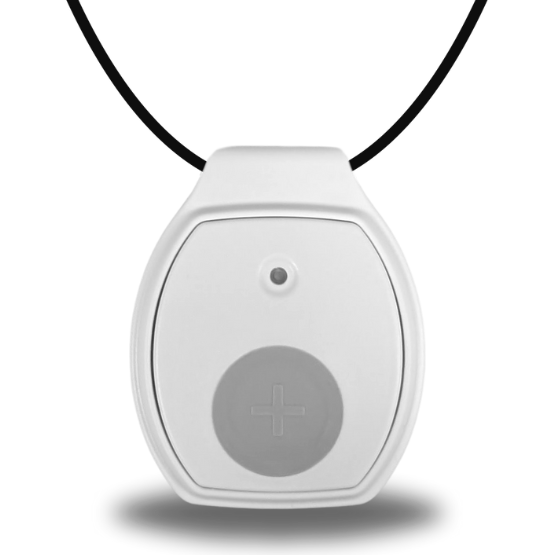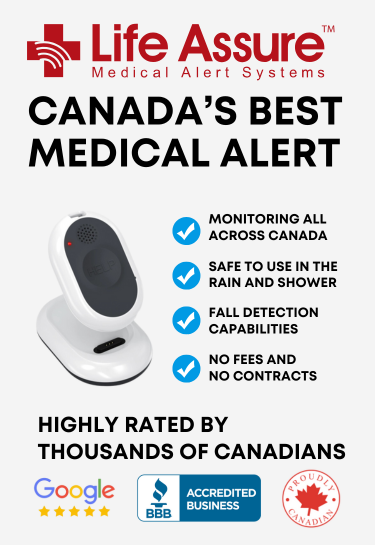How To Lower Cholesterol: A Guide For Canadian Seniors
For Canadian seniors, keeping cholesterol in check is crucial for heart health and reducing the risk of heart disease. Learn practical tips on how to lower cholesterol through simple lifestyle changes. Seniors can enhance their well-being and enjoy a healthier life by focusing on diet, exercise, and other key habits.
Life Assure Product Quiz
Find The Perfect Medical Alert Device
Take our 30 second quiz and discover which Life Assure medical alert device is the right fit for you or a loved one.
Life Assure Product Quiz
Find The Perfect Medical Alert Device
Take our 30 second quiz and discover which Life Assure medical alert device is the right fit for you or a loved one.
Understanding Cholesterol: The Key To Heart Health For Seniors
Cholesterol is a fatty substance your body needs to function, but too much of the wrong type can harm your heart. There are two main types: LDL (bad) and HDL (good). LDL can build up in your arteries, while HDL helps remove excess LDL from your bloodstream.
Monitoring cholesterol levels is vital for seniors. As we age, high cholesterol can lead to atherosclerosis, a condition where arteries narrow and harden. This increases the risk of heart attacks and strokes.
Understanding the difference between "good" and "bad" cholesterol is key to managing heart health. By knowing your cholesterol levels, you can make healthier choices and work with your healthcare provider to keep it in check.
Dietary Changes To Lower Cholesterol
What you eat can make a big difference in your cholesterol levels. For seniors, tweaking your diet is one of the easiest ways to improve heart health without relying solely on medication. Here are some simple changes you can make to your meals that can help lower your cholesterol.
Increase Fibre Intake
Fibre, especially the soluble kind, is a cholesterol-fighting superhero. It works by trapping cholesterol in your digestive system, preventing it from entering your bloodstream. Good sources of soluble fibre include:
- Oatmeal and oat bran
- Beans and lentils
- Apples, pears, and citrus fruits
Try starting your day with a bowl of oatmeal topped with berries, or add a side of beans to your lunch or dinner.
Choose Healthy Fats
Not all fats are created equal. Replacing saturated and trans fats with healthier unsaturated fats can help lower your LDL cholesterol. Some heart-healthy fat sources include:
- Olive oil for cooking and salad dressings
- Avocados on toast or in salads
- A handful of nuts as a snack
Incorporate Plant Sterols And Stanols
These plant compounds work similarly to soluble fibre, blocking cholesterol absorption in your gut. You can find them in some fortified margarine and orange juices, or you could take supplements, but always check with your doctor first.
Remember, small changes can add up to significant results when managing your cholesterol through diet.
Lifestyle Modifications For Cholesterol Management
Beyond diet, everyday habits play an important role in managing cholesterol. For seniors, these practical changes can make a real difference in heart health.
Regular Physical Activity
Getting moving is a powerful way to reduce cholesterol. Exercise boosts HDL cholesterol while lowering LDL and triglycerides. Plus, it strengthens your heart and gets your blood flowing better.
As a senior, pick activities you actually enjoy and can handle safely. A brisk walk around the neighbourhood or local park is a great start—aim for about 30 minutes five days a week. If you have access to a pool, swimming or water aerobics are fantastic options, especially if you have joint issues.
Staying active isn't just about cholesterol. It can lift your mood, help you sleep better, and keep you feeling sharp. It's truly one of the best things you can do for your health.
Maintain A Healthy Weight
Carrying extra pounds, especially around your midsection, can throw your cholesterol levels out of whack. Losing even a modest amount of weight can help bring those numbers down.
Focus on gradual, sustainable changes rather than drastic diets. Combine your new exercise routine with healthier eating habits. Simple swaps like choosing whole grains over refined carbs or having fruit for dessert instead of baked goods can add up over time.
Quit Smoking
If you're still smoking, quitting is one of the most impactful things you can do for your heart health. Smoking lowers HDL cholesterol and damages blood vessels, making them more prone to cholesterol buildup.
Quitting isn't easy, but there's plenty of support available. Talk to your doctor about nicotine replacement options or medications that can help. Many communities offer free smoking cessation programs tailored for seniors.
Remember, it's never too late to quit. Your body starts healing within hours of your last cigarette, and your heart health can improve significantly within a year of quitting.
Keeping Tabs On Your Cholesterol
Regular check-ups are key to managing your cholesterol. Your doctor will likely recommend a blood test every few years or more often if you're at higher risk. These tests give you and your healthcare team a clear picture of your heart health, helping guide your treatment plan.
Sometimes, diet and exercise aren't enough to get cholesterol levels where they need to be. That's when medications come into play. Statins are a common choice, working to reduce the cholesterol your liver produces. Other options include bile acid sequestrants and cholesterol absorption inhibitors, each tackling the problem differently.
Your doctor is your best resource for navigating these options. They'll consider your overall health, any other medications you're taking, and your lifestyle to find the right approach. Remember, pills work best when paired with healthy habits.
Conclusion
Managing cholesterol is an ongoing effort that contributes to better overall health and well-being. Simple lifestyle changes, such as increasing fibre intake, choosing healthier fats, and staying active, can help improve cholesterol levels. Regular exercise, maintaining a healthy weight, and quitting smoking are also effective strategies for managing it. Routine health checks and collaborating with your doctor help keep cholesterol in check and reduce the risk of heart-related issues.
By taking these steps, you're not just lowering your risk of heart disease; you're investing in a better quality of life. Taking a proactive approach to managing cholesterol helps reduce the risk of heart disease and strokes, leading to a longer, healthier life. Small, consistent changes can make a big difference, so start today and work with your healthcare provider to stay on track. Your heart will thank you for every step you take.











 Get Help With The Push Of A Button
Get Help With The Push Of A Button















